Croatia MUP: Deported Nigerians are Lying According to Police
Croatia MUP representatives released a statement today regarding the Nigerian students who had reported to the Bosnian portal Žurnal that they were arrested by Croatian police in Zagreb, forcibly taken to Bosnian border and then left there.
Police Claim They Didn’t Act on Skin Color
Croatian police have dismissed those allegations, according to their statement as reported by Index on December 4, 2019.
"Claims that Croatian police acts and condemns individuals on the basis of their skin color are unacceptable and we strongly reject them! The police have verified the accusations of the alleged treatment of the Nigerian nationals in Zagreb on November 17. On November 18, they properly checked out of their hostel in Zagreb with their documents and left," they claim.
The police also announced what they have learned about the case so far.
"The Ministry of Internal Affairs of the Republic of Croatia have reviewed the allegations made publicly on the Bosnian portal Žurnal, and have determined the following through their research:
- On November 12, five Nigerian nationals entered Croatia, legally and according to proper procedures, to participate in an inter-university competition in Pula. The group consisted of a team leader and four participants.
"The team leader and one participant legally left the Republic of Croatia via the Zagreb Airport, after competing," MUP reported.
Conflicting Accounts of Documents Loss and Dates
Police also say Nigerians checked out of the hostel a day later than they were allegedly expelled from the Republic of Croatia.
"The two Nigerian nationals, who are being mentioned in the Bosnian media, left for Zagreb a day earlier than the rest of the group, and stayed in Zagreb. Therefore, they checked into the Zagreb hostel on November 16 of this year. On November 18, they checked out of their hostel and went to an unknown destination, after paying their expenses and taking their travel documents and personal effects with them.
Therefore, its entirely inaccurate, and we reject the allegation that their documents remained in the hostel, and that police officers of the Zagreb Police Department had acted inappropriately against them. We call attention to the contradictions in their statements and their allegations about how the police officers allegedly dealt with them on November 17. The fact is that they appropriately checked out of their Zagreb hostel on November 18 (a day later). The police had no record their legal departure from the Republic of Croatia, nor did police officers working in the field of illegal migration deal with people with these names," MUP added.
Fifth Participant Tried to Enter Slovenia Twice
MUP also wrote about the group's fifth participant, whose visa expired while he was in Croatia. He received a judgement to leave the European Economic Area (EEA) within 14 days.
"Regarding the fifth participant in the group, it was determined that he left his accommodation in Pula on November 17 of this year. He tried to leave the Republic of Croatia and enter Slovenia at two separate border crossings. On both occasions, Slovenian border police officers denied him entry because he does not possess a Schengen visa. Following these two attempts to cross the border, the Nigerian national arrived at the Central Zagreb Police Station on November 18 and reported the loss of his travel documents. He was offered the option to contact his embassy but refused.
Then He Applied for Asylum in Croatia
Given that his visa had expired on 17 November of this year, he was issued a judgement to leave the European Economic Area (EEA) within 14 days, following an administrative procedure. However, the Nigerian citizen did not leave Croatia, but returned to the Central Police Station in Zagreb on November 27th and expressed his intention to seek international protection in the Republic of Croatia. He was granted protection status and is currently in the Asylum Seekers' Asylum Reception Center in Zagreb. It is important to note that, on this occasion, he presented the travel document which he had previously reported lost," they added.
Police claim that third-country foreign nationals are using legal entry into the Republic of Croatia to attempt to move further to the EU after participating in the activities for which the permits were obtained.
Using Sports Competitions to Enter EU Illegally
"All of the Nigerian nationals had their return tickets for November 17 of this year. Two of them used their air tickets and left Croatia on that day, while the remaining three missed their opportunity to leave Croatia legally. This fact casts real doubt on the intent of their arrival and stay in Croatia.
Police officers had been encountering abuses of alleged and real participation in sports competitions in Croatia during their elevated campaign in the fight against illegal migration. Entering Croatia legally and participating in an approved sports activity is one way for foreign nationals from third countries to continue their journey illegally to their target destination countries in Europe.
The Republic of Croatia has refused entry to nine Nigerian nationals at border crossing this year due to non-compliance with conditions for entry.
Police officers will continue to investigate the allegations and review available facts in this case to determine whether this is another case of abuse of sports competitions for the purpose of illegal migration," MUP concluded.
Follow our Politics page here to keep updated on the migrant crisis in Croatia.
Croatia: USA Planning to Waive Visa Requirement for Croatian Citizens
Finally, 28 years after Croatia declared independence, the United States is on the verge of waiving travel visas for Croatian citizens. The Croatian government and their US partners have been working together closely since Interior Minister Davor Bozinovic’s visit to the US at the beginning of last year.
Extremely important security criteria and agreements should be finalized this month according to Sandra Veljković/Večernji List on December 3, 2019. And visa denials, which is the main obstacle to abolishing the visa requirement, have been reduced from 5.96 to a record 4.02 percent, which is close to the 3 percent threshold that will guarantee entry into the visa-free program.
Croatia Encouraged to Follow Poland’s Path
To further this goal, the US encouraged Croatia to follow Poland’s path, which reduced the number of refusals this year, and entered a visa-free program with a collective application from officials, businessmen and citizens who will certainly be granted visas. In Croatia, this action has already been initiated at various levels, especially among businessmen.
- Croatia is close to meeting the criteria and we will continue to work with the relevant authorities to help Croatia meet the requirements. We urge the Croatian Government to take a proactive role and review the successful steps the Polish government has taken in its bid for admission to the visa waiver program, the US Embassy in Zagreb said.
Three Percent Rejection Rate Goal
So, what steps has Poland taken? And what is the background story regarding the sharp decline in visa refusal rates from nearly six percent in 2017 to below three percent? That country, in agreement with the US, initiated a process of encouraging its citizens to obtain US tourist visas. In addition, Polish officials also applied for visas, thereby reducing the rate of visa refusals. They concentrated, of course on those groups of people who have the best chance of obtaining visas. This method, which has been discussed with Americans for a long time, could theoretically function in Croatia, since the real numbers of rejections are rather small: around 300 to 400.
US Ambassador to Croatia Robert Kohorst also spoke with Croatian Chamber of Commerce President Luka Burilović about the Polish model for reducing visa rejections. The CCC confirmed this meeting and discussion regarding visas.
Croatia Among Four EU Countries Needing Visas for US
- Croatia is one of four EU member states, along with Bulgaria, Romania and Cyprus, whose passport holders still need visas to arrive and stay in the US. They stressed the need to reduce the rejection rate to at least three percent, and both sides agreed that they could achieve this goal by this time next year. This will require a concerted effort to encourage members of the business community to apply for visas within the next ten months, the CCC reported. In addition, another cause for optimism is the large number of valid visas, which are issued every 10 years, so that their renewals could positively impact the balance between approved and rejected visas.
Secure Source of Income Required
Although Americans have the discretion to refuse requests without giving a reason, according to diplomatic sources, most of the rejected requests are being filed by Croatian nationals in Serbia and Bosnia. Most of the visa rejections were for people who could not prove that they had a secure source of income. And applicants have often contacted family members living in the US who have businesses or trades, which was another indicator that the applicant was going to the US to get a job with a relative.
Check out our Lifestyle page here or our Politics page here to follow travel and visa information for Croatian citizens.
Croatian Faces Possible 10 Month Sentence for Painting Franjo Tuđman Statue
The first hearing for the trial of Croatian Filip Drača, a 24-year-old who vandalized the Franjo Tuđman statue in Zagreb with sickle and hammer graffiti earlier this year, was held on Thursday, November 28, 2019. A criminal complaint has been filed against him for property damage, and the State Attorney's Office is seeking a sentence of 10 months and 3 years' probation.
Croatian Inquiry
After Filip Drača sprayed a sickle and a hammer on the Franjo Tuđman statue on January 5, 2019; a public inquiry was launched to bring this perpetrator to justice as soon as possible, as reported by Anja Vladisavljević/Balkan Insight on November 29, 2019. Police have released security camera photos, and many major media outlets have been implicitly urging citizens to 'make a difference'.
Such demonstrations of force appear to send the public a message that the character and accomplishments of Croatia’s first President Franjo Tuđman must not be criticized. To counteract apparent intimidation tactics, a group of left-wing parties and associations organized a protest, and around 20,000 HRK (2700 EUR) has been raised for Drača’s defense.
When Drača was arrested, he confessed immediately. But when asked in court if he felt guilty, he responded that he did not feel guilty for the alleged offence. In an interview with Novosti newspaper in January, he said: “My intent wasn’t that serious, I meant to provoke and tease a little. If I offended anyone, that’s their problem. There is something wrong with anyone who perceives Tuđman and his small comical country as sacred.”
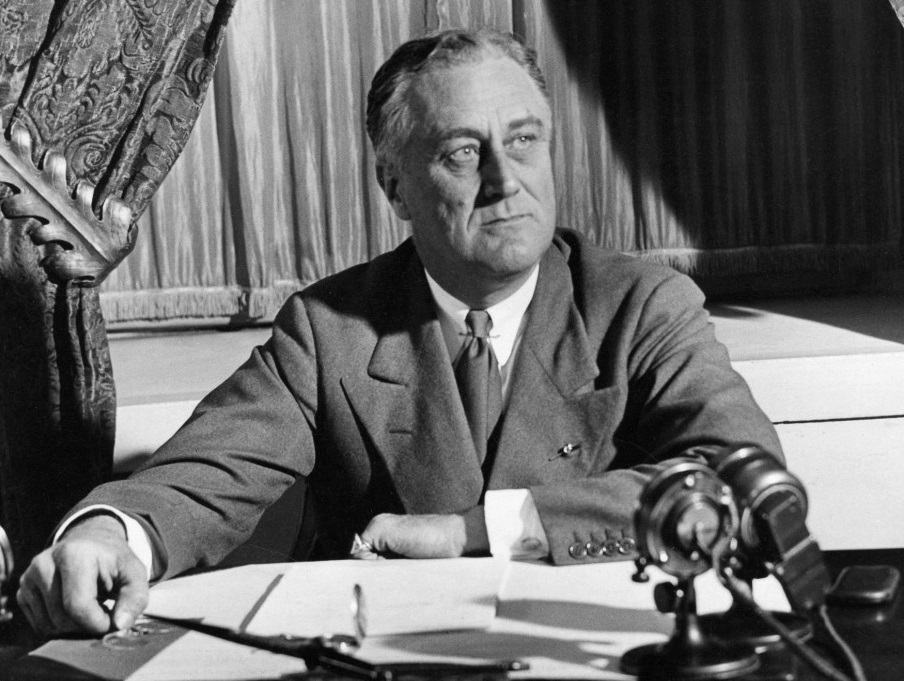
Resembles Franklin D. Roosevelt
The controversial four-meter-high Tuđman statue was unveiled in December 2018, on the 19th anniversary of his death, and was met with protests which resulted in arrests.
Critics have pointed out that the statue doesn’t resemble the Croatian president at all. Defenders indicated that the sculptor had taken considerable artistic license (apparently by softening the president’s distinctive features). In fact, it might be argued that the Zagreb statue looks more like US President Franklin D. Roosevelt, who led the United States out of the Great Depression and back to economic prosperity in the 1930’s.
Graffiti Normally Minor Offense
The first hearing was held Thursday, November 28, 2019 at the Zagreb Municipal Criminal Court. The prosecution claims that the property was severely damaged and that it was the perpetrator’s intention to damage the statue and alter its appearance. But as Drača’s lawyer Lina Budak pointed out, the statue was not severely damaged – nor has its value or usability been diminished.
Budak also believes that a criminal trial should have never been initiated because this is a "minor offense" and the case could have been prosecuted as a misdemeanor. It’s obvious that there are two sets of criteria, she emphasized, since official investigations into graffiti vandalism are rarely initiated, or ever proceed to a criminal trial. As Zagreb Mayor Bandić once said, “Don't make an elephant out of a fly ... if any (monument) is damaged, let us know and we will restore it in two days,” after the statues dedicated to anti-fascists/communists in Dotrščina were vandalized. The question is why don't the same principles apply to the Franjo Tuđman statue.
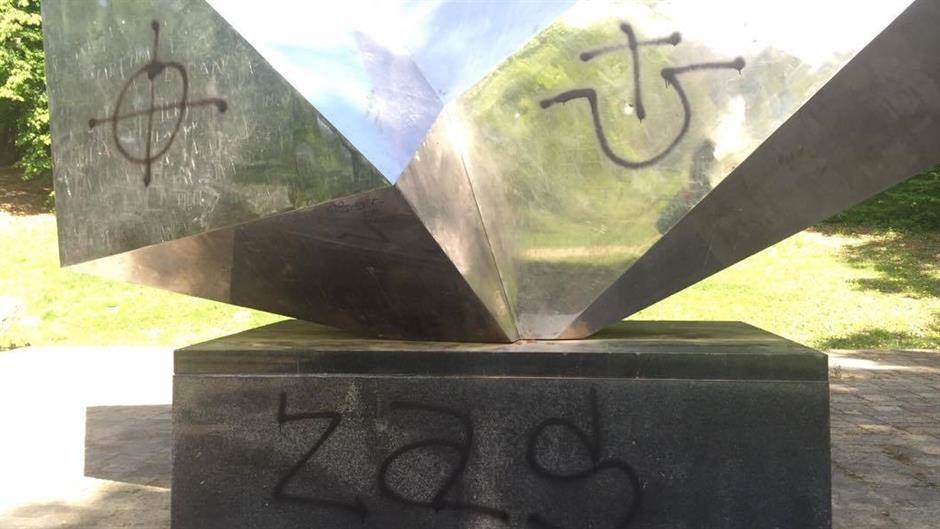
Croatian Anti-fascist Statues Destroyed
It’s worth noting that over 3000 anti-fascist statues have been destroyed in Croatia since the 1990s. That destruction is ongoing, and the culprit is often an "unknown perpetrator". In other words, there doesn't appear to be any government interest in prosecuting anyone who destroys monuments dedicated to anti-fascism.
Repair Costs Not Disclosed
Perhaps the most interesting detail from today's hearing is that the City of Zagreb, which owns the statue, has not yet provided an estimate of the alleged material damage. This means that the criminal complaint was filed without knowing the extent of the damage, which is problematic since the gravity of the offense is directly correlated to the repair costs - whether they amount to 100 or 100,000 HRK.
Regarding damage repairs, the City of Zagreb already pays lump sums of money, among other things, to two contractors who maintain the statue and grounds. Those maintenance contracts include removal of graffiti, so it seems excessive to claim any harm to the 'property owner' or the city.
The hearing ended after the plaintiffs and the defendants had presented their evidence. And, the next hearing is scheduled on February 21, 2020 at 9:00. The trial is open to the public.
To stay updated on the trial of Filip Drača and Croatian politics, follow our page here.
Croatian Identity Theft: Documents on Black Market Due to MUP Chaos
Croatian national security is at stake because criminal organizations have infiltrated the MUP identity document issuing system, which stores the personal information of Croatian citizens and residents, according to Željko Cvrtila, a national security expert and former police chief.
"Low wages, lack of internal oversight, political recruiting, and the interference of politics and money within MUP (Croatia Ministry of the Interior) are the main reasons for the appearance of Croatian identity documents on the illegal market," he added during a brief interview to Renata Škudar/Nacional on November 29, 2019.
Is Croatia's national security at stake?
“This is endangering national security, because Croatia’s document issuing system has been infiltrated, and a lot of original identity cards and passports have fallen into the hands of criminal organizations. The system has been penetrated because the intelligence and security networks in our neighboring eastern states are connected to criminal organizations in these countries and with criminal groups in Croatia. All of this is happening on Croatian territory and that is our biggest problem."
How did so many Croatian documents appear on the illegal market?
"The MUP system is intertwined with various political lobbies and people who are not subject to internal oversight. Procedures are not being properly implemented and the people in charge of these systems are not doing their jobs. There is a lack of oversight regarding employee resources and criminal organizations can easily exert their influence in such a permeable system. The system only works when corrupt politicians and the mafia aren't interfering in politics and business, or providing and returning favors. Otherwise, we’ll have chaos where crime reigns,” concluded Cvrtila.
Read an EU national’s account of MUP abuse here. Find out how to change your address at MUP here. Follow our Lifestyle page here and our Politics page here for updates on MUP and the activities of other branches of Croatian government. The MUP website can be accessed here.
Croatia Earned 134.5 Million EUR from Foreign Film Productions
Since 2012, Croatia has received 1 billion Kuna (134.5 Million EUR) from foreign production companies which have filmed at our locations, said Krešimir Partl, State Secretary of the Ministry of Culture, at the MAKK 2019 International Authors/Creators’ Conference on Friday.
More Interest in Croatia Locations
According to PoslovniDnevnik on November 30, 2019; Partl added that he expects even more interest in Croatia from foreign film producers, not only because of an array of attractive locations, but because of the advancement of the Croatian film industry.
"They come here because the locations suite them, and because of our incentive system for creative industries. We’ve raised incentives to 25 percent. When foreign producers film in Croatia, they employ our production services, and receive a 25 percent of the return on their local consumption," Partl noted.
He added that foreign producers are very interested in filming in our locations, which significantly contributes to the development of our local communities and tourism and has an interesting effect on some of our competing countries.
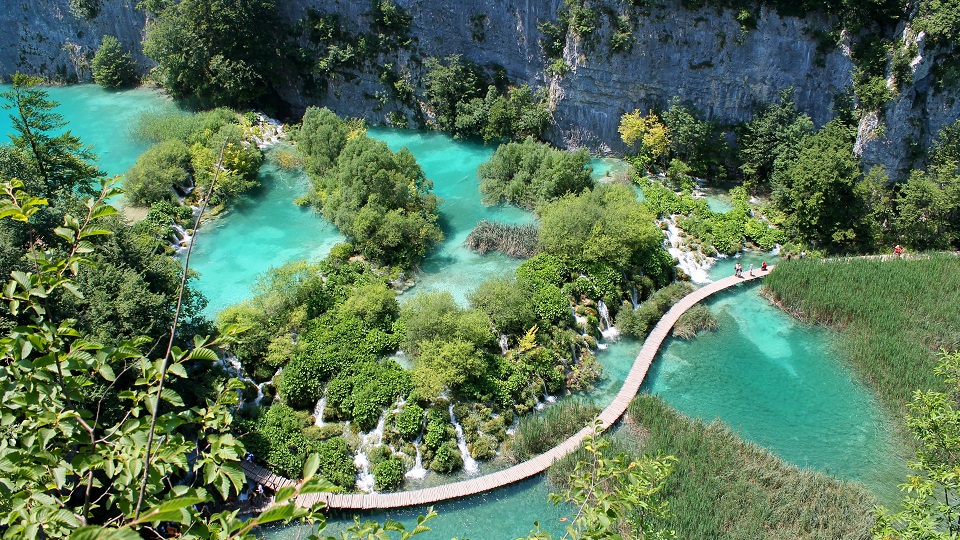
Plitvice Lakes | Pascal Habermann | Unsplash
Tourism Increased at Film Locations
"Specifically, because of the sequel to 'Mamma Mia', which was filmed in Vis, the Greek culture minister resigned because Greece had lost that opportunity. But we should also note that we have had an increase in tourists visiting locations where 'Robin Hood', 'Star Wars', 'Mamma Mia' were filmed", Partl revealed.
"Currently, there is so much filming in Croatia that there is not enough local set staff to cover production needs," Partl said, highlighting the benefits of incentives in other sectors of the creative industry, including video (computer) games, which were included for the first time in the law on audiovisual activities.
Croatia Video Game Sector
"The video game sector is also very important in the transition period, with about 18 per cent of audiovisual specialists working in the video game industry at the EU level. The video game industry has grown 50 per cent in Croatia annually and is currently generating income of around HRK 400 million a year (54 Million EUR)," Partl added.
He mentioned the video game "Scum" which was developed by Croatian gamers and was at one time the best-selling game in the world. He announced possible incentives for further stimulating this industry which are modeled after the film industry similar industries in the incentive system.
"Within the contemporary financial perspective and national development strategy, the Ministry of Culture is placing a great emphasis of the on the creative sector. The position of the Ministry of Culture is that culture is not an expense. Rather culture, especially the creative sector, is an extremely important factor which plays a significant role in the national GDP and small investments which can also create many jobs”, said Partl.
Creatives 7.5 Percent of EU Workforce
He also pointed out that nearly 11.2 percent of all EU businesses are in the cultural and creative industries, which accounts for between 4 and 6.9 percent of the EU's GDP and employing between 3.8 and 7.5 percent of the total workforce.
Partl cited additional his involvement in the Ministry of Culture, which has adopted new legislation related to the cultural and creative industries. He reiterated that the Electronic Media Act will soon be open to public debate and announced that the draft Act on Performing Art and Encouraging Art Creativity is in its final phase.
The 2019 MAKK (International Authors/Creators’ Conference) also hosted lectures on the impact of the Copyright and Related Rights Directive in the EU's digital single market for newspaper publishers and author’s rights for journalists and other "creatives".
For more information on the Croatian film industry, film productions and locations; follow our Made in Croatia page here or our Lifestyle page here.
Euro 2020 Draw: Croatia in Group D with England, Czech Republic
November 30, 2019 - The Euro 2020 draw was held in Bucharest from 6 pm on Saturday. Croatia will play in Group D with England, the Czech Republic, and the winner of Nations League C.
The draw for the highly anticipated Euro 2020 began at 6 pm in Bucharest, one of the 12 host cities of this first-time format. The draw included 20 national teams who have already qualified, while we'll find out the four remaining teams in March when the Nations League finals are held.
Croatia was drawn into Group D with England, the Czech Republic, and the winner of Nations League C (Norway/Serbia v Scotland/Israel).
You can see all of the Euro 2020 groups below:
Group A: Italy, Switzerland, Turkey, Wales
Group B: Belgium, Russia, Denmark, Finland
Group C: Ukraine, Netherlands, Austria, A/D-League Playoff Winner
Group D: England, Croatia, Czech Republic, C-League Playoff Winner (Norway/Serbia v Scotland/Israel)
Group E: Spain, Poland, Sweden, winner of the B-League Playoff Winner
Group F: Germany, France, Portugal, D/A-League Playoff Winner
The pots for the draw were as follows:
Pot 1: Italy, Belgium, England, Germany, Ukraine, and Spain
Pot 2: France, Poland, Switzerland, CROATIA, the Netherlands and Russia
Pot 3: Portugal, Turkey, Austria, Denmark, Sweden, Czech Republic
Pot 4: Finland, Wales, play-off A, play-off B, play-off C, play-off D
Recall that Croatia could only be drawn in groups A, D, E and F.
Croatia could not be drawn into Group B, where Denmark and Russia are the hosts, and Group C, with the host Netherlands. Before Saturday, we knew that the possible opponents for Croatia were Italy, England, Spain, and Germany.
The first game of Euro 2020 will be played in Group A, in Rome, Italy starting at 9 pm.
You can see a breakdown of the cities and stadiums hosting the competition below:
GROUP A
Rome (Italy) - Olimpico (72.698)
Baku (Azerbaijan) - Baku Olympic Stadium (68.700)
GROUP B
Saint Peterburg (Russia) - Gazprom Arena (68.134)
Copenhagen (Denmark) - Parken (38.065)
GROUP C
Amsterdam (Netherlands) - Johan Cruyff Arena (54.990)
Bucharest (Romania) - Arena National (55.600)
GROUP D
London (England) - Wembley (90.000)
Glasgow (Sweden) - Hampden Park (52.063)
GROUP E
Bilbao (Spain) - San Mames (53.332)
Dublin (Republic of Ireland) - Aviva (51.700)
GROUP F
Munich (Germany) - Allianz Arena (75.000)
Budapest (Hungary) - Puskas Arena (67.889)
ROUND OF 16
Bucharest, Copenhagen, Bilbao, London, Glasgow, Dublin, Budapest, Amsterdam
QUARTERFINAL
Saint Petersburg, Munich, Rome, Baku
SEMIFINAL
London
FINAL
London
To read more about sport in Croatia, follow TCN’s dedicated page.
Flights to Croatia: LOT Connecting Budapest and Dubrovnik, Air Serbia Stops Rijeka Service for Winter
November 28, 2019 - The latest news from around Croatia’s airports for new flights to Croatia with updates from Dubrovnik, Rijeka, and Zadar.
Ex Yu Aviation announced that LOT Polish Airlines would launch a seasonal service between Budapest and Dubrovnik next year. The new route will operate from June 7 and run once a week, on Sundays, until September 27.
This will be the third city LOT services to Dubrovnik, in addition to Warsaw and Krakow.You can find more details about the new Budapest - Dubrovnik route here.
Avio Radar reported that Irish low-cost carrier Ryanair will boost the Cologne/Bonn-Zadar route for next summer. The line only started operating this year with two flights per week. Next summer, Ryanair will run three flights a week, and in addition to Wednesdays and Sundays, they will service Zadar on Mondays from the beginning of June to the end of September 2020. A Boeing 737-800 aircraft flies on all Ryanair lines.
Avio Radar also reported that Serbia’s national air carrier Air Serbia would suspend traffic between Belgrade and Rijeka during the winter. The last flight is scheduled for December 5, 2019. A few more flights around the New Year remain on offer. The line will then continue to operate on a regular basis from May 1, 2020, according to the summer flight schedule, which runs twice a week on Tuesdays and Fridays. Compared to this year, Air Serbia will begin operations to Rijeka one month earlier than in 2019. An ATR-72 runs on this line.
To end this week of flight news, Dalmacija Danas reported that the Split Architectural Bureau of Ante Kuzmanić is the winner of a competition for the conceptual architectural and urban design of the Zadar Airport passenger terminal. A group of Split architects designed the extension and renovation of the existing terminal building and parking lot. They received a prize of 250,000 kuna for the project. The competition was conducted by the Society of Zadar Architects.
The projects were evaluated by a jury chaired by academician Nikola Bašić, who said that if the conceptual design is transformed into a design project, Zadar Airport will be the most modern airport in Croatia, as it combines all the new parameters that make such an object comfortable and safe.
To read more about travel in Croatia, follow TCN’s dedicated page.
Croatia Basketball Learns Opponents for Olympic Qualifying Tournament in Split
November 27, 2019 - The Croatia basketball team, led by coach Veljko Mrsic, will face Tunisia and Brazil in the Split qualifying tournament for the 2020 Olympic Games in Tokyo. The groups were decided in a draw held at the FIBA headquarters in Geneva on Wednesday.
The second group, which is also played in Split, includes the national teams of Germany, Russia, and Mexico. Croatia will likely crossover with Germany or Russia. The first two teams from each group will go to the semifinals, with only the overall winner of the tournament going to the Olympics.
The qualifiers will be played in four different tournaments, each with six participants. The Olympic qualifying basketball tournaments will be played from June 23 to 28 next year, with host cities of Split, Belgrade, Kaunas, and Victoria in Canada.
Although he led the national team last summer on three continents (in Croatia, the NBA Summer League in Las Vegas and the Borislav Stankovic Tournament in China), coach Veljko Mrsic will sit on the bench for the first time for an official FIBA match next February in the new qualifying round for the European Championships in 2021. However, the biggest national team exam will be next June. Coach Veljko Mrsic shares his take on the draw.
"First of all, we have to understand the tournament in Split as a great prize and a great opportunity to promote basketball in our country, and then as an opportunity to qualify for the Olympic Games," said coach Mrsic.
“The group is tough… after all, all groups are tough and there are great teams in each. The possibility of Germany is a bit aggravating, but there it is. It is difficult and too early to talk about the chances at this point because we do not know how the other teams will arrive, and we cannot be sure about our own team. What is important is that we are a team. A team that our fans can be proud of and that we can be proud of. That is the basic goal that we must work on, and all that will be one big reward."
What does Mrsic expect in Split and from Split?
“This is a solid tournament, the strongest played on Croatian ground since EuroBasket 1989 in Zagreb and I am sure that our audience will recognize this and that the Split stands will be full and that we will really have a lot of support and wind at our backs from our audience."
Eight national teams have already qualified for the Tokyo Olympics next year. They are Spain, Argentina, France, Australia, the USA, Iran, Nigeria, and the host Japan.
Source: HKS
To read more about sport in Croatia, follow TCN’s dedicated page.
Zagreb Franjo Tuđman Airport: High Fees Causing Airline Exodus
Major airlines are pulling out of the Franjo Tuđman Airport in Zagreb, Croatia. While the coastal airports are experiencing a boom in air traffic; passenger growth has been stagnating this year in Croatia’s capital. The decline is expected to continue into 2020; as Jakov Fabinger/SimpleFlying points out on November 24, 2019.
Low Passenger Numbers
According to the airport’s own statistics, Franjo Tuđman Airport has handled 2.96 million passengers so far in 2019. It had handled 2.89 million passengers by the same time last year, which is only a slight increase. There are two reasons why this is a significant problem for Croatia and for the airport itself. First, the negligible growth comes during a period when Croatia is booming. Iberia keeps expanding year after year, direct flights to the USA have resumed after 28 years, and passenger growth is averaging 10% this year. Zagreb Airport is lagging far behind the growth rates of Croatia as a whole, but it is also behind its European counterparts.
Zagreb in Advantageous Position
Zagreb Airport appears to be in an advantageous position. It is the only airport serving the Croatian capital and the only airport in the vicinity of the wider catchment area. But its passenger numbers are still comparably low. At just 45 flights per day, the airport is less busy than many of Europe’s secondary airports like Palermo, Hanover or Aberdeen. In Lithuania’s capital Vilnius, which is half the population size of Zagreb, air traffic is almost 50% higher.
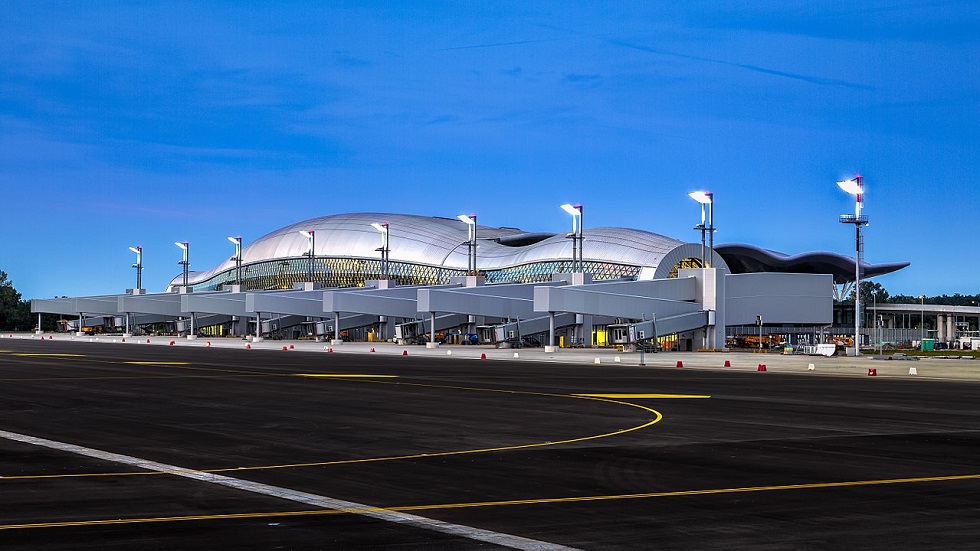
2020 Will Be Worse
In 2020, Zagreb Airport passenger numbers are expected to shrink. No new routes have been announced. And Croatia Airlines, the national carrier of Croatia, will be receiving government grants to cover its operating losses. Furthermore, there is a risk that Ljubljana Airport will soon become the low-cost alternative to Zagreb. Ljubljana, the Slovenian capital, is just two hours’ drive away from and has been left with a serious lack of air connectivity since the demise of Adria Airways.
Airline Routes Cut
Korean Air has converted its service between Zagreb and Seoul from year-round to seasonal. CSA Czech Airlines has discontinued flights completely and Eurowings has discontinued ticket sales for flights from Zagreb to Berlin and Dusseldorf from March onwards. FlyDubai has significantly reduced the number of wintertime weekly flights. Furthermore, Eurowings will be operating flights to Hamburg for a shorter time period in the summer only, and Swiss Air has completely cancelled its flights to Zurich.
Exodus After Short-term Incentives Expire
Eurowings has cited high fees at Zagreb as a deterrent for introducing new routes. And now that it will cut the two routes mentioned above. It will only be serving Cologne and Stuttgart from Zagreb. EasyJet, Ryanair and Wizz Air do not serve Zagreb at all. EasyJet left the airport in 2014, also citing high fees.
The pattern of route cancellations is interesting too. Zagreb Airport offers incentives to airlines for new routes, and airlines make use of them. But as soon as the incentives stop, they tend to pull out. CSA Czech Airlines introduced year-round flights between Prague Václav Havel Airport and Zagreb in the summer of 2016. As it was a new route, the airline was given significant discounts on various charges. Discounts for winter operations were particularly high. But, CSA Czech Airlines made use of the incentives for one winter and then discontinued winter services for 2017/18. Finally, in 2019 it also discontinued summer flights and has left the airport completely.
Emirates operated daily flights to Zagreb for a one winter before pulling out of Zagreb completely, as did Korean Air. There is a clear pattern here: an airline will leave as soon as the incentives package expires.
From January until June 2020, Croatia will take its turn at EU presidency. And yet the country’s capital has only 14 airlines maintaining year-round routes, even during this time period.
Follow our Travel page for more information on airlines and travel options to Croatia.
Croatia: Environmental Organization Sea Shepherd Opens Office
Sea Shepherd, a world environmental organization, is establishing an office in Zagreb, Croatia. It was founded in 1977 by Captain Paul Watson to fight for the protection of the sea and its inhabitants. Since then, Sea Shepherd has become the most active and successful organization dealing with the protection of the ocean and marine fauna.
The Sea Shepherd fleet consists of 13 ships with crews of volunteers from all over the world, and has the largest private fleet in the world, which is on call day and night. Sea Shepherd doesn’t engage in protest rather they focus on responding and use tactics and direct actions to investigate, document and prevent illegal activities which cause damage to the world’s oceans.
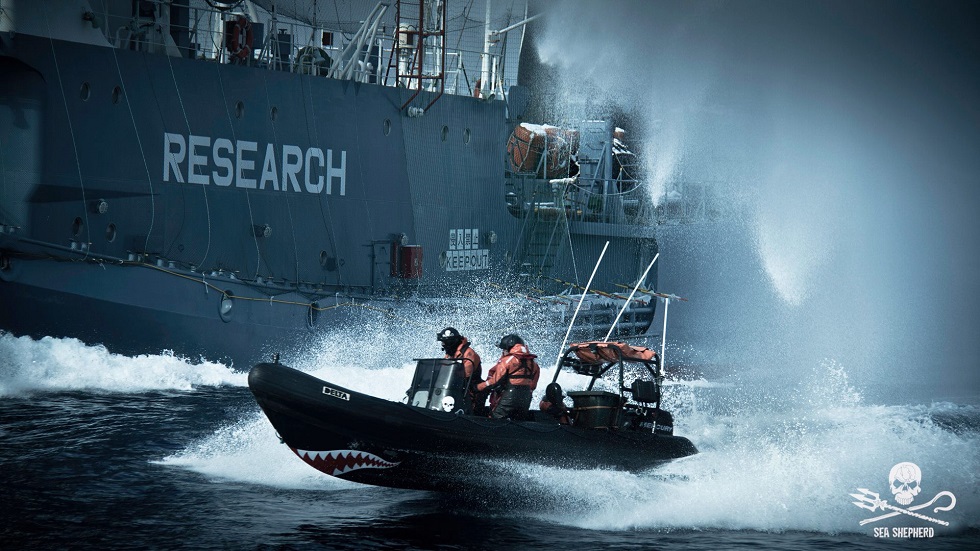
Stopping Whale Hunts
Over the past 40 years, due to their actions, massive underwater life hunts have been on the decline worldwide. Sea Shepherd has worked against the seal massacre in Canada, the whale massacre on the Faroe Islands, illegal fishing in the Mediterranean, dolphin killing in Japan, and for the protection of the Vaquita porpoise in the Gulf of Mexico, among many other actions. For ten years, they have been actively combating commercial whaling of the Japanese fleet in the Pacific Ocean, despite attempts by that fleet to disguise the hunt for research purposes. This is the action they are most well-known for.
Each year, the Japanese fleet seek to slaughter a minimum of 1,000 whales to make their catch commercially viable. Thanks to Sea Shepherd’s on-site responses, they have been prevented from hunting and have been virtually forced to give up. About 5,000 whales have been rescued and set free. Sea Shepherd continues to operate due to the success of their campaigns and the support of volunteers and donors. For more information on Sea Shepherd’s global work, visit their website here.
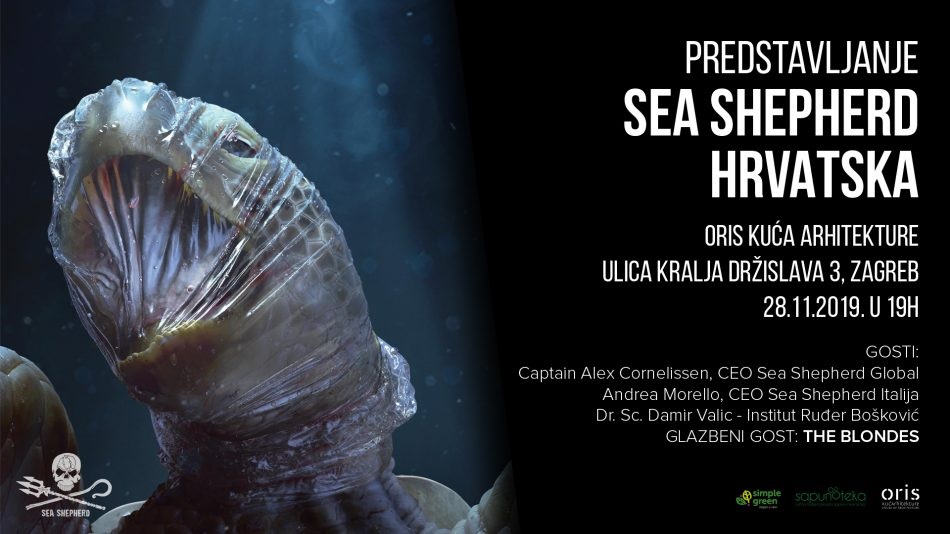
First Event in Croatia
Sea Shepherd organizers will be holding their first public event in Croatia on November 28, 2019. They will be discussing their organization at the Oris kuća arhitekture (Oris House of Architecture) in Zagreb. They will also reveal how they are fighting to preserve the ocean, the current state of the Adriatic Sea and how to take action to promote the survival of underwater life.
This is an opportunity to obtain information, ask questions, and find out how we can save the sea and support the world's most active marine conservation organization.
DATE: 11/28/2019
TIME: 19:00
PLACE: Oris kuća arhitekture (Kralja Držislava Street 3, 10 000 Zagreb)
GUESTS: Captain Alex Cornelissen CEO of Sea Shepherd Global and others
Other guest speakers include Andrea Morello CEO Sea Shepherd Italy, Robert Mach CEO Sea Shepherd Austria, Scientists at the Ruđer Bošković Institute and numerous guests from the world of science, sports and entertainment.
More information about the event can be found here.
A video of Sea Shepherd removing an illegal driftnet in the Mediterranean:
For more information on environmental issues in Croatia, follow our Lifestyle page.


